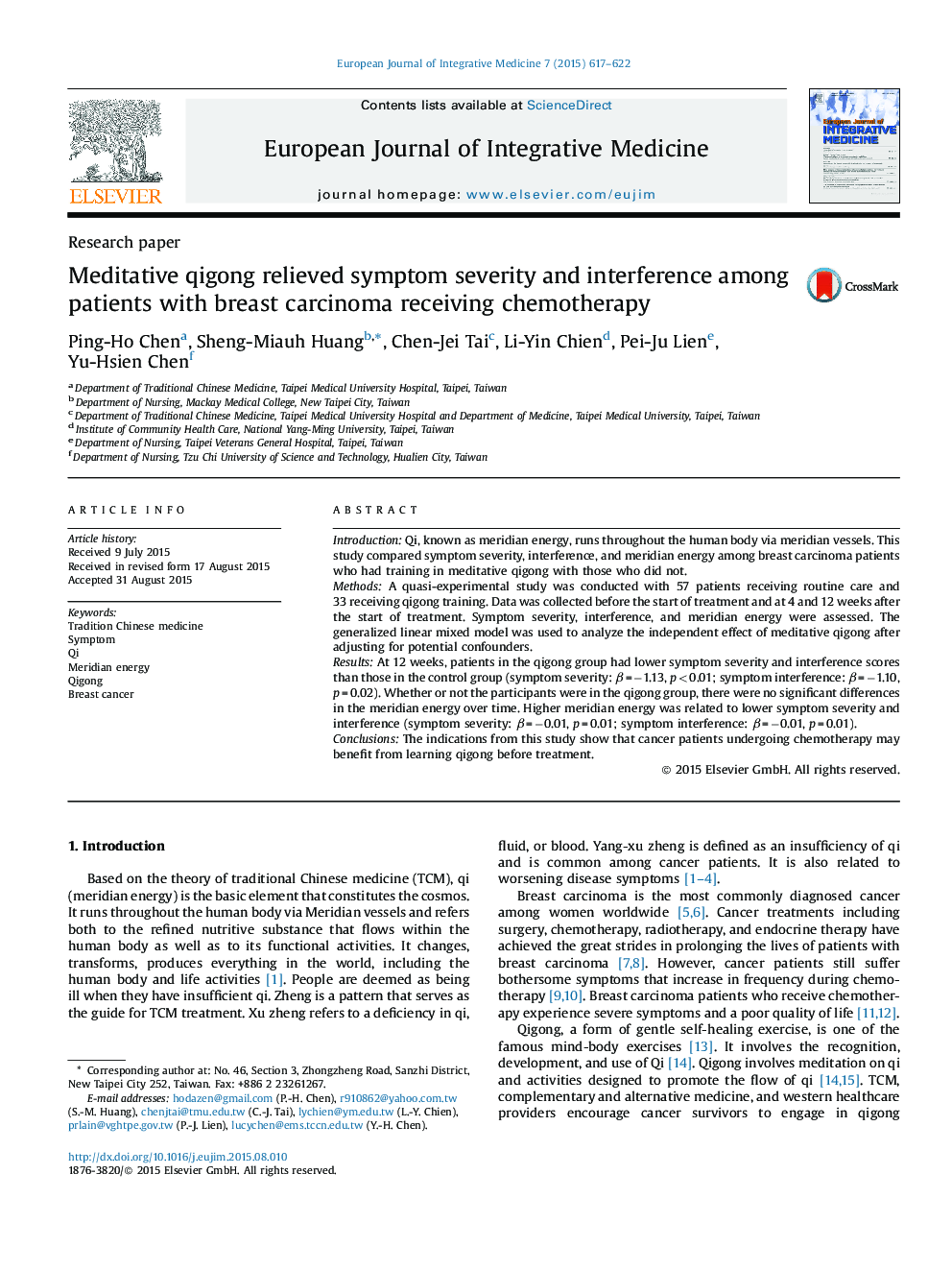| Article ID | Journal | Published Year | Pages | File Type |
|---|---|---|---|---|
| 5807815 | European Journal of Integrative Medicine | 2015 | 6 Pages |
IntroductionQi, known as meridian energy, runs throughout the human body via meridian vessels. This study compared symptom severity, interference, and meridian energy among breast carcinoma patients who had training in meditative qigong with those who did not.MethodsA quasi-experimental study was conducted with 57 patients receiving routine care and 33 receiving qigong training. Data was collected before the start of treatment and at 4 and 12 weeks after the start of treatment. Symptom severity, interference, and meridian energy were assessed. The generalized linear mixed model was used to analyze the independent effect of meditative qigong after adjusting for potential confounders.ResultsAt 12 weeks, patients in the qigong group had lower symptom severity and interference scores than those in the control group (symptom severity: β = â1.13, p < 0.01; symptom interference: β = â1.10, p = 0.02). Whether or not the participants were in the qigong group, there were no significant differences in the meridian energy over time. Higher meridian energy was related to lower symptom severity and interference (symptom severity: β = â0.01, p = 0.01; symptom interference: β = â0.01, p = 0.01).ConclusionsThe indications from this study show that cancer patients undergoing chemotherapy may benefit from learning qigong before treatment.
